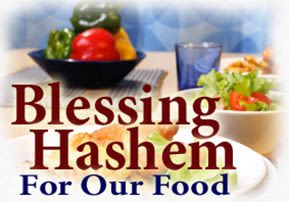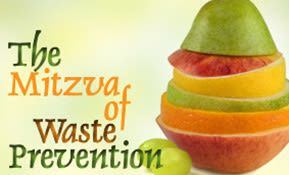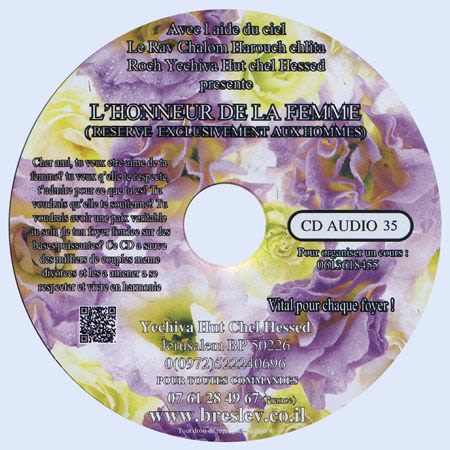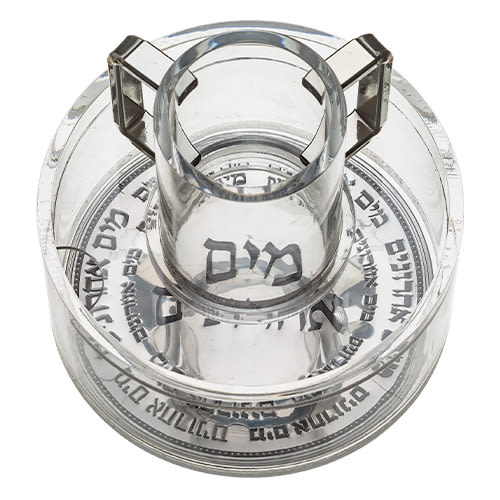
Blessing Hashem for our Food
A delightful glance at the soon-to-be-released kosher herbal cookbook and explanation of the spiritual practicality of blessings...

“When you have eaten and become satisfied, then you must bless Hashem your G-d for the good land which He has given you.” (Devarim 8:10)
Overview
The purpose of reciting brachot (blessings) is to affirm that there is one G-d in the world and that everything belongs to Him. We ask permission from G-d before eating. A person who derives pleasure from anything in this world without a blessing is compared to a person who steals from G-d.[1] Blessing with proper intention purifies and elevates the Divine sparks contained in food. Learning Torah, praying to G-d, or using the food’s energy to perform a mitzvah elevates the sparks contained in the food to the upper worlds, from where they had originally fallen. The sparks of holiness are thereby returned to their source. If food was eaten by someone who didn’t think about G-d at all and didn’t use its nourishment for good deeds; its spark would be degraded.[2]
Without these Divine sparks, nothing can exist. G-d’s word is the essential vitalizing power concealed within the food that we eat.[3] When recognizing this truth by blessing Hashem for our food, we elevate our pleasure of eating, and transform our table to an altar and our food to a sacrifice. [4]
Rabbi Yehuda Hanasi, one of the richest men to ever exist, never took any pleasure from this world. Although he had a table of kings, his awareness of G-d as the source of all his abundance turned his worldly pleasure into the Divine pleasure, transforming earthly food into manna from Heaven. Manna, like the fruits of Paradise, was supernal light in physical form that contained no waste and was, therefore, absorbed completely into the body. It included no mixture of Evil in its composition, since only Goodness descends from Heaven.[5] Blessings transform Earth to Heaven; resembling the World to Come where neither food nor drink exist and only righteous people enjoy the Divine splendor. In this world, the spiritual food is covered in a garment, yet the blessing reveals its inner essence. This is in contrast to the personification of physical desire– the snake, who is nourished by physicality and “everything he eats will taste like the dust of the ground”.[6] By blessing Hashem for our food we free ourselves from the curse of the snake, and enjoy the Divine life force within the food. This helps us understand why “The Torah was only given to the generation who ate manna”.[7] In every generation, the Torah is given to those who purify the food from the snake bite, and transform it to manna. Because Rabbi Yehuda Hanasi elevated his food into manna, he was given the ability to compile the Mishna.[8]
Blessings Increase Appreciation and Enjoyment
“He shall receive a blessing from Hashem, and righteousness from the G-d of his salvation.” (Tehillim 24:5)
Yehuda Halevi explains that brachot enable us to appreciate and enjoy the food, as they expand our consciousness. When we recite brachot with proper devotion and understanding, they help us to anticipate the coming enjoyments and to feel gratitude toward G-d for granting us these pleasures.
A person’s preparation for and anticipation of a pleasurable experience, along with thoughts of how he would feel if it were denied him, doubles the satisfaction and enjoyment he ultimately feels when he partakes of it. If one experiences anxiety about possibly losing the pleasure, it will be all the greater when he blesses, “Who has granted us life, sustained us, and enabled us to reach this occasion”… [9]
When thanking a person we express our gratitude on a higher level when acknowledging each of the favors we received rather than just saying “thanks for everything.” Therefore, we are specific in our blessings, for each type of food, whether it came from the earth, from a tree, from grains, etc. We should strive to become experts in the laws of brachot, for the rectification of elevating holy sparks is through the specific bracha for each food. The “before-bracha” elevates the sparks, while the “after-bracha” raises the souls reincarnated in the food. “Boreh Nefashot rabot..lehachayot bahem nefesh kol chai.”(Who has created many souls…to give life to each soul.)[10]
Prayer often involves yearning for a changed reality, yet brachot focus us on the present. When we bless Hashem, we recognize perfection of the moment, and how we are saturated with blessings. We praise Hashem for the countless gifts that He bestows upon us every split second.[11] The words of our brachot have the power to expand Hashem’s blessings and increase our שפע –the abundance emanating from the upper words. In this way brachot are expressions of gratitude that enable us to be givers even when it seems that we are essentially ‘takers’.[12]
Proper intention when reciting blessings
“…Rise up and bless Hashem your G-d from everlasting to everlasting, and let them bless your glorious name, which is exalted above all blessing and praise.” (Nehemiah 9:5)
Brachot with the names of G-d awaken the soul. Their effect can be increased by concentrating on the meaning of each word. Recited with deep intention, the blessing draws light from above, sparks from below, and heals the soul of both the one who is blessing and the one responding with “Amen”.[13] The greater one’s awareness of the oneness of G-d, and the inner significance of the blessing, the higher the sparks will be elevated.[14] When blessing with proper כוונה– kavana the Divine sparks are separated from their husk, otherwise they may (G-d forbid) return to the husks.[15] According to Ariza”l whoever does not bless with kavana causes his body to become more corporeal and as a result he may eat unnecessary or even forbidden foods (G-d forbid). Therefore, focusing on reciting brachot with proper intention may actually be more effective for weight-loss than the multitude of diet-plans on the market.
Every time you bring any food to your mouth, think about the work of separating the holy sparks in the food from the side of impurity, and make effort to recite the bracha before and after with kavana. When mentioning the Name of Hashem have in mind to arouse the holy Name through which all the worlds were created including the food that you are eating now. When reciting brachot, hold the food in your right hand, so it may become a vessel for the light being drawn down from Above through reciting the bracha.
Mitzvot, even without kavana, enact certain rectifications. However, since eating is not always a mitzvah, its rectification necessitates blessing with kavana. While the animals always recognize how their food is dependent on their master, – this is not always the case of human beings,[16] and therefore, we need to put our efforts into acknowledging Hashem as the source of our bounty in order to infuse our meals with G-d consciousness and transform our eating into a mitzvah.
***
Rebbetzen Chana Bracha Siegelbaum is Director of Midreshet B’erot Bat Ayin in Gush Etzion
* * *
[1] Hanina Bar Papa said: Whoever benefits from this world without blessing, is like one who steals from the Holy One, blessed be He and from the commonality of the people of Israel (Brachot 35b)
[2] Sarah Yehudit Schneider, Eating as Tikun p. 28
[3] Et ha Ochel (ibid)
[4] (ibid)
[5] Rabbi Chaim of Volozhin 1749 – 1821, Talmudist, and ethicist, prominent student of the Vilna Gaon, Ruach Chayim on Pirkei Avot chapter 3
[6] (Bereishit 3:14)
[7] Yalkut Shimoni, Chapter 15, allusion 258
[8] The main body of the Oral Torah
[9] Yehuda Halevi, (1075–1141) Spanish Jewish philosopher and poet. The Kuzari, third article, letter 17
[10] Ariza”l, Rabbi Yitzchak Luria Ashkenazi,(1534-1572) Leading Kabbalist, Tzefat, Israel
Sefer Halikutim, Parshat Ekev, chapter 8, Rabbi Aharon Roth, (died 1946) Founder of Toldos Aharon, Satmar-Jerusalem, Shulchan Hatahor, article about the simple kavanot
[11] Eating as Tikun p. 61
[12] Rabbi Eliyahu Dessler, (1892- 1953), Master of Mussar, London/Bnei B’rak, Mictav M’Eliyahu, Strive for Truth Volume one, page 147-148 (gratitude)
[13] Eating as Tikun p. 42
[14] Ibid. p. 28
[15] Ariza”l, Sefer Halikutim, Parshat Ekev, chapter 8
[16] Shulchan Hatahor, article about the simple Kavanot










2/02/2014
Mazel tov…. …Your article made it into my edition of a blog carnival! http://foodiscoveryblog.blogspot.com/2014/01/foodiscovery-presents-batya-medads.html Hi, Rebbetzin!
http://foodiscoveryblog.blogspot.com/2014/01/foodiscovery-presents-batya-medads.html Hi, Rebbetzin!  I miss you and B'erot! How are you and the school?
I miss you and B'erot! How are you and the school?
2/02/2014
…Your article made it into my edition of a blog carnival! http://foodiscoveryblog.blogspot.com/2014/01/foodiscovery-presents-batya-medads.html Hi, Rebbetzin!
http://foodiscoveryblog.blogspot.com/2014/01/foodiscovery-presents-batya-medads.html Hi, Rebbetzin!  I miss you and B'erot! How are you and the school?
I miss you and B'erot! How are you and the school?